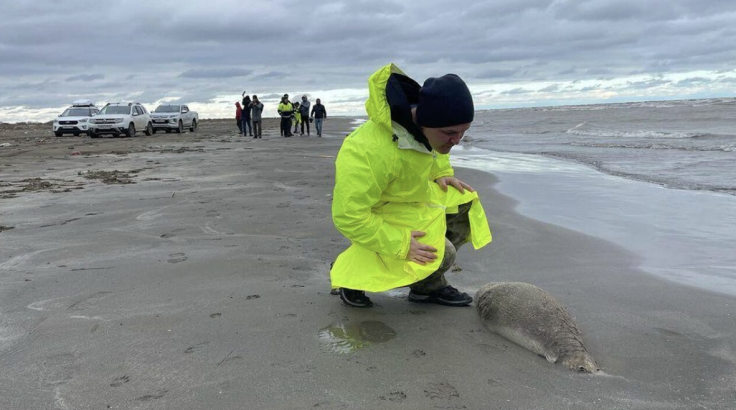Around 2,500 seals found dead on Russia's Caspian shore
Caspian seals' population has decreased by around 90% in the last 100 years.
Around 2,500 endangered seals were found dead in the southern Russian province of Dagestan over the weekend, according to the Russian Ministry of Natural Resources and Environment. The carcasses were found at different locations in the province.
Caspian seals have been classified as endangered by the International Union for Conservation of Nature (IUCN) since 2008.
The seals washed ashore on the coast of the republic of Dagestan. According to authorities, the seals likely died of natural causes, and the actual number of dead seals is likely higher. Experts at the Federal Fisheries Agency did not find any evidence suggesting that the mass die-off may have been caused by pollutants.
Over 2500 Caspian seals were found dead on the Russian shores of the Caspian sea. They have lived in the region for millenia and are already endangered species. Any more escalation may pave the way for their extinction. pic.twitter.com/ddvbFtGLiu
— Cavid Ağa (@cavidaga) December 4, 2022
Officials initially reported that 700 dead seals were found on the coast, but later raised the figure to about 2,500. Dagestan's Ministry of Natural Resources said that there were "no signs of violent death, no remains of fishing nets."
The ministry claims that the overall number of Caspian seals in the area remains between 270,000 and 300,000, while the Caspian Environmental Protection Center pegs it at 70,000.
Meanwhile, experts from the centre have collected samples to identify the cause of death. Zaur Gapizov, head of the Caspian Environmental Protection Center, said that there was no sign that the seals were killed or caught in fishing nets.
The latest incident comes after more than 140 seals were found dead along Kazakhstan's coastline earlier this year. At least three such incidents have already been reported this year, according to a CNN report.
According to animal rights activists, the seal population has decreased by around 90% in the last 100 years. They have been under threat from poaching, overfishing, and oil leaks.
Caspian seals who survive mainly on fish, are at the top of the food pyramid, and have no natural predators as adults. They can reach a length of more than 1.6 metres (5.2 feet) and weigh up to 100 kilograms (220 pounds). They are the only mammals found in the Caspian Sea.

© Copyright IBTimes 2025. All rights reserved.






















